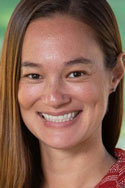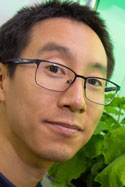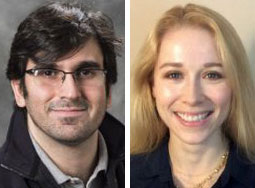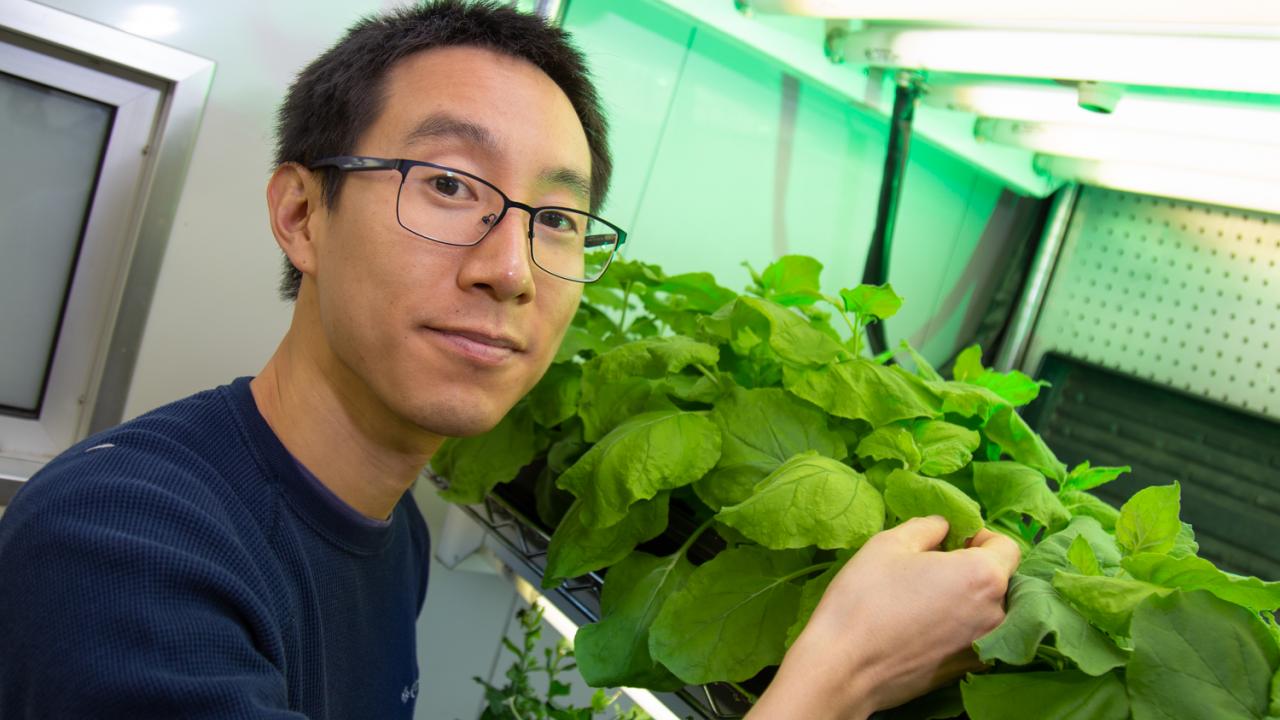Four young faculty members at the University of California, Davis, have been awarded prestigious Sloan Research Fellowships, the Alfred P. Sloan Foundation announced today (Feb. 19). The two-year fellowships are worth $70,000 each.
The recipients are: Rachael Bay, assistant professor of evolution and ecology, and Patrick Shih, assistant professor of plant biology, both in the College of Biological Sciences; and Eduardo da Silva Neto and Inna Vishik, both assistant professors of physics, College of Letters and Science.
Rachael Bay

She studies how corals adjust to warming ocean temperatures. In previous research, she has identified genes and genetic variants responsible for acclimation and adaptation in reef-building coral species. She’s also performed transplant studies, in which she moved corals to areas of the reef where they didn’t grow naturally to see how they’d react to different water temperatures.
“There’s some sort of balance between getting just enough exposure to high temperatures to learn how to deal with them and being repeatedly stressed enough to actually threaten your survival,” Bay said. “That’s a complicated balance I think we don’t really understand yet.”
Bay plans to use her Sloan fellowship toward a survey of thermal tolerance in corals across the Pacific. She holds a bachelor’s degree in marine science from the University of Miami, a Master’s of Science from Dalhousie University in Nova Scotia, Canada, and a Ph.D. from Stanford University.
Patrick Shih

He will probe the origin of photosynthesis by reconstructing the enzymes that ancient microbes used some 2.3 billion years ago. Unfortunately, fossil and geological records aren’t the best preservers of ancient microbial life. But new techniques can allow Shih and his colleagues to resurrect these ancient photosynthetic enzymes and explore their evolution.
“If you have the genomes of all these different bacteria, you can start to glean certain hints of how this process unfolded,” Shih said. “We’re very interested in how we can start to do these genome gazing approaches to better understand how this process evolved and maybe even start asking when it evolved.”
Shih earned a bachelor’s degree in microbiology as well as a Bachelor of Arts in political science from UC San Diego and received his Ph.D. at UC Berkeley.
Eduardo da Silva Neto and Inna Vishik

Da Silva Neto and Vishik are condensed matter experimentalists who investigate exotic superconducting materials. Their research also falls under the umbrella of topological materials, an emerging field that is transitioning from theory to experiment.
Superconductors are solids — usually metals — that conduct electricity with no resistance. Resistance is what causes electronics like laptops to heat up during use. Vishik focuses on superconductivity created by stacking extremely thin layers of crystalline solids; each layer is just a few atoms thick. Her expertise includes precision measurement techniques such as angle-resolved photoemission spectroscopy, which measures the motion of electrons in crystalline solids.
Da Silva Neto is searching for topological superconductors for quantum computation. Quantum computers store information in quantum bits, also called qubits. A key challenge for bringing quantum computers into wide use is the hardware — building computer processors with qubits that maintain their quantum state over time. Topological materials offer a new approach to the qubit challenge, because the quantum state of particles in the materials is protected from surrounding interference.
Da Silva Neto earned his doctorate in physics at Princeton University and was a postdoctoral researcher at the University of British Columbia’s Quantum Matter Institute before joining the UC Davis Department of Physics in 2016. He has a background in filmmaking and is producing a series of videos discussing condensed matter physics.
Vishik holds three degrees from Stanford University: Bachelor of Science in physics, Master’s of Science in materials science and Ph.D. in applied physics.
Nominated by fellow scientists
Sloan Research Fellowships are open to scholars in chemistry, computer science, economics, mathematics, computational and evolutionary molecular biology, neuroscience, ocean sciences, and physics. Candidates must be nominated by their fellow scientists and winning fellows are selected by independent panels on the basis of candidates’ research accomplishments, creativity, and potential to become leaders in their fields.
Forty-four UC Davis faculty members have received Sloan Research Fellowships since they were first awarded in 1955.
Media Resources
Andy Fell, News and Media Relations, 530-752-4533, ahfell@ucdavis.edu
